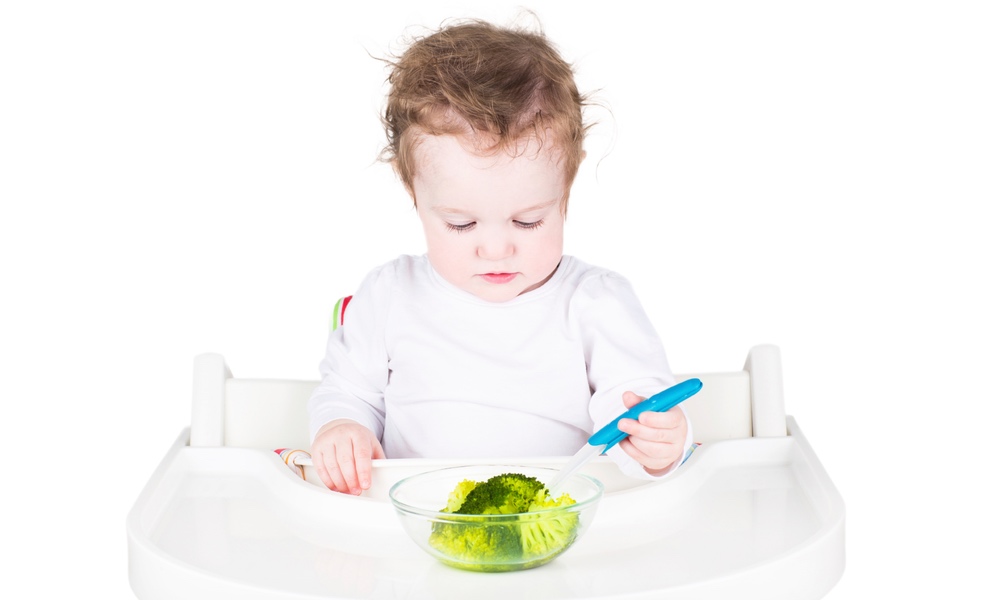Babies are born with their own precious little personalities. Whether they are easy-going, outgoing, temperamental or somewhat on the shy side, a new study suggests their personality traits may affect how they react to new foods.
“From the time they're very young, some infants are more ‘approaching’ and react positively to new things, whereas other infants are more 'withdrawing' and react negatively to the same stimuli,” Kameron Moding, one of the authors of the study, said in a statement.
Little research has studied whether babies’ personalities affect their response when offered new foods, so researchers at Penn State University decided to investigate.Sometimes a child has to see the food eight to ten times, but with patience and repetition, eventually a child is likely to try — maybe even like — a food they have repeatedly refused.
At the age of 18 months, the now-toddlers were allowed to explore a room filled with unfamiliar objects, like a tunnel, an animal mask and a black box, and their reactions were once again observed and noted.
The babies who had a positive reaction to new toys at the age of 12 months reacted the same way to new foods. And those who reacted negatively to new toys were tentative when exposed to new foods. In addition, the way the babies reacted to new foods at the age of 12 months was indicative of how they would react to new objects during their toddler years.
Our temperaments are part of our personalities, and we all fall somewhere between exuberant and withdrawn. People on the extroverted end of the spectrum tend to react positively to new things and situations, while those on the introverted end of the scale tend to be shy.
“Temperament is kind of like a pair of glasses that each person wears. It's the unique way one sees the world,” said author, Cynthia Stifter, a Penn State professor of human development, whose previous research on temperament was the basis for this study. “Everything one responds to is through the lens of who they are, meaning the biology-based individual differences that they're born with.”
The study is published in Child Development.





